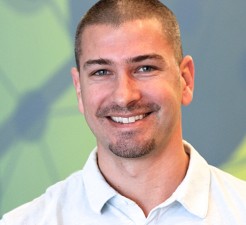This website uses cookies so that we can provide you with the best user experience possible. Cookie information is stored in your browser and performs functions such as recognising you when you return to our website and helping our team to understand which sections of the website you find most interesting and useful.
Brady Bernard
at the Institute for Systems Biology
Brady Bernard
Visiting Scientist
Send Emailbrady.bernard@isbscience.org
(206) 732-1315
 shmulevich.isbscience.org/bio/brady-bernard/
shmulevich.isbscience.org/bio/brady-bernard/
Dr. Bernard’s research interests are in cancer drug discovery and clinical genomics. He is currently a part of the ISB Genome Data Analysis Center (GDAC) within The Cancer Genome Atlas (TCGA) network. During this time, he has developed novel computational methods and analyses in support of TCGA network research and publications, and has provided scientific guidance for the data exploration tools and algorithms developed by the team. Dr. Bernard has led the group’s research efforts and contributions to several TCGA Analysis Working Groups, particularly in the area of heterogeneous data integration and graph analysis. In collaboration with experts in functional genomics he has integrated TCGA and RNAi screening data to prioritize novel targets and tumor types for drug discovery and repurposing. His research in the area of cancer genomics has resulted in several proffered presentations at TCGA symposia and AACR meetings on distinct topics, a First Prize in the YarcData Graph Analytics Challenge, and a Life Science Discovery Fund grant to further the development of our cancer genomics web portals.
In the area of clinical genomics, Dr. Bernard co-leads a collaboration with Inova Translational Medicine Institute (ITMI) to provide analytic support and develop scalable infrastructure for the integration of clinical data with whole genome sequences and molecular data from thousands of patients. Related to this effort, Dr. Bernard has worked with the PRE-EMPT Global Pregnancy Collaboration (CoLab) as well as the Crohn’s and Colitis Foundation of America (CCFA) to advise in the study design and infrastructure of large-scale clinical genomics programs.
Concurrent with his research at ISB, Dr. Bernard spent two years as a Venture Capital Fellow with Accelerator Corp, evaluating new investment opportunities and working directly with portfolio oncology companies; he is Adjunct Professor of Biology at Seattle University, Seattle, WA where he has taught undergraduate Genomics; and he is regularly involved with ISB’s Logan Center for Education where he is co-developing constructs for undergraduate systems biology education and co-coordinates workshops for Community College faculty development in the area of Big Data science and education.
Computational and theoretical modeling of biological systems. Integration and analysis of large, heterogeneous genomic, clinical, and semantic data. Identification and characterization of therapeutic targets through functional genomics and structural bioinformatics. Atomic and molecular level investigation of biological networks in health and disease.
PhD, Bioengineering, University of Washington, 2009


